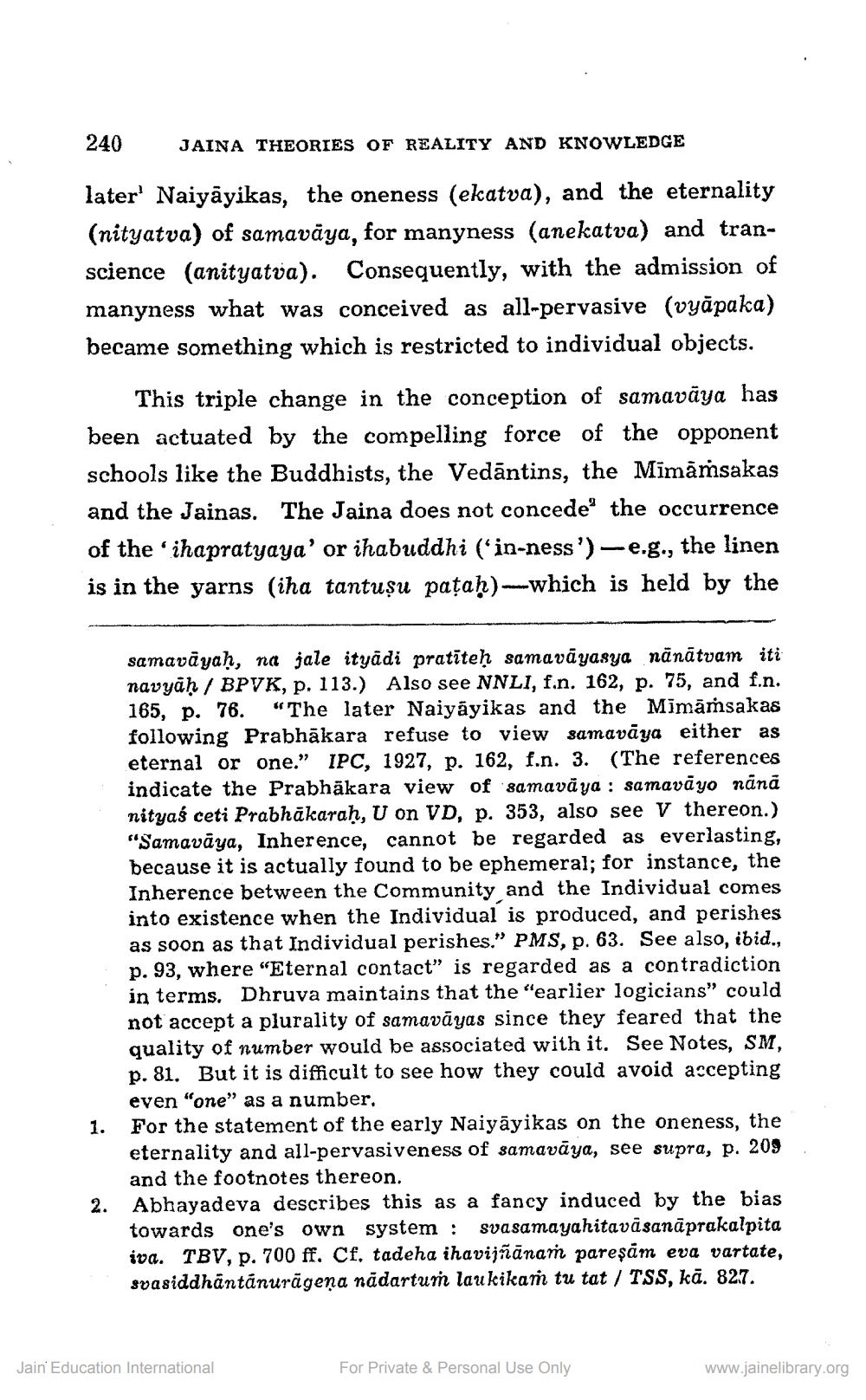________________
240
JAINA THEORIES OF REALITY AND KNOWLEDGE
later' Naiyāyikas, the oneness (ekatva), and the eternality (nityatva) of samavāya, for manyness (anekatva) and transcience (anityatva). Consequently, with the admission of manyness what was conceived as all-pervasive (vyāpaka) became something which is restricted to individual objects.
This triple change in the conception of samavāya has been actuated by the compelling force of the opponent schools like the Buddhists, the Vedāntins, the Mīmāṁsakas and the Jainas. The Jaina does not concede the occurrence of the 'ihapratyaya' or ihabuddhi (“in-ness')-.g., the linen is in the yarns (iha tantușu pațah) --which is held by the
samavāyah, na jale ityādi pratiteh samavāyasya nänātvam iti navyāḥ / BPVK, p. 113.) Also see NNLI, f.n. 162, p. 75, and f.n. 165, p. 76. "The later Naiyāyikas and the Mimāṁsakas following Prabhākara refuse to view samavāya either as eternal or one." IPC, 1927, p. 162, f.n. 3. (The references indicate the Prabhākara view of samavāya : samavāyo nānā nityaś ceti Prabhākarah, U on VD, p. 353, also see thereon.) "Samavāya, Inherence, cannot be regarded as everlasting, because it is actually found to be ephemeral; for instance, the Inherence between the Community and the Individual comes into existence when the Individual is produced, and perishes as soon as that Individual perishes." PMS, p. 63. See also, ibid., p. 93, where "Eternal contact” is regarded as a contradiction in terms, Dhruva maintains that the "earlier logicians" could not accept a plurality of samavāyas since they feared that the quality of number would be associated with it. See Notes, SM, p. 81. But it is difficult to see how they could avoid accepting
even "one" as a number, 1. For the statement of the early Naiyāyikas on the oneness, the
eternality and all-pervasiveness of samavāya, see supra, p. 209
and the footnotes thereon. 2. Abhayadeva describes this as a fancy induced by the bias
towards one's own system: svasamayahitavāsanāprakalpita iva. TBV, p. 700 ff. Cf. tadeha ihavijñānaṁ pareşām eva vartate, svasiddhäntánurāgena nädartum lau kikam tu tat / TSS, kā. 827.
Jain Education International
For Private & Personal Use Only
www.jainelibrary.org




